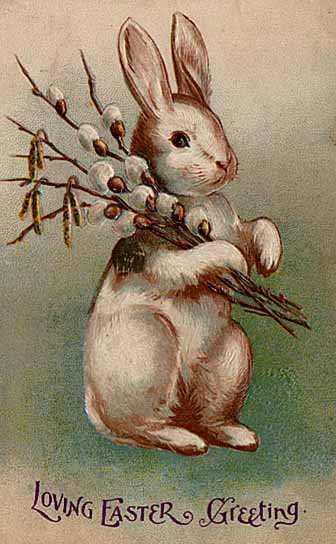PRESTO SARÀ PASQUA, CELEBRIAMO IL 17/4/22 - SOON IT WILL BE EASTER, LET’S CELEBRATE ON 17/4/22
/Celebrando la Santa Pasqua, riflettiamo su un mondo che desidera la Pace / Celebrating Holy Easter let’s reflect on a world longing for Peace
The SCA respects the beliefs of all Faiths, and we are sure that they, as we do, wish that there would be Peace in the world. Therefore, the above statements form the basis of the following:
Recent Australian Bureau of Statistics reveals Australia's religious diversity, and that Christianity remains the dominant religion in Australia, with 86% of religious Australians identifying as Christians.
There has been an increase in the number of people who are Atheists however, those of the Catholic Faith has remained strong at 22.6% with, as a matter of interest, Islam also remaining steady at at 2.6%.
Therefore, as Christians Celebrate Easter 2022, we thought we would provide a comprehensive overview of the meaning of Easter (Ref. Christianity.com & Paul Lostia), its origins and what the day means for Christians today.
Not forgetting the Easter Bunny, the Symbol of the Dove, finishing off with YouTube Links of two late music icons (Louis Armstrong & John Lennon) highlighting that we should “Give Peace A Chance’ and reminding us “What A Wonderful World” we live in.
Meaning of Easter
Easter Sunday is without a doubt one of the most important celebrations in the Christian calendar, Easter is a day that celebrates the Resurrection of our Lord Jesus Christ. After his crucifixion, death, and burial, three days later, He rose from the grave. By this, He conquered death and redeemed us from sin.
The Easter holy day did coincide with some pagan holidays. Because the church didn't celebrate Easter until a certain point, owing to the persecution the church experienced for the first few centuries, the Christian creation of the celebration did happen around the same time as another pagan celebration was in full swing. Nevertheless, on this day, we strive to celebrate God's victory over the grave.
Christian Meaning of Easter
The significance of Easter is Jesus Christ's triumph over death. His resurrection means the eternal life that is granted to all who believe in Him. The purpose of Easter also means the full confirmation of all that Jesus taught and preached during His three-year ministry. If He had not risen from the dead, if He had simply died and not been resurrected, He would have been thought just another teacher or prophet. However, His resurrection rebuked all that and provided final and undeniable proof that He was really the Son of God and that He had overcome death once and for all.
The resurrection of Jesus Christ from the dead is the core of the Christian gospel. Saint Paul says that if Christ is not raised from the dead, then our preaching and hope are in vain. Certainly, without the resurrection, there would be no Christian preaching or faith. The apostles of Christ would have continued as the disheartened group which the Gospel of John depicts being in hiding for fear of the Jews. They were in total despair until they met the risen Christ. Then they touched Christ's wounds of the nails and the spear; they ate and drank with Him. The resurrection became the foundation of everything they said and did.
The resurrection affirms Jesus of Nazareth as not only the prophesied Messiah of Israel but as the King and Lord of a new Jerusalem: a new heaven and a new earth.
Pagan Origin of Easter
Nevertheless, Easter did not always signify Christ's resurrection from the dead and the purpose of Easter was considerably different than what Christians observe today. The feast day of Easter was first a pagan Celebration of renewal and rebirth, it praised the pagan Saxon goddess Easter. When early Christian missionaries saved the Saxons to Christianity, the spring holiday, because it occurred near the same season as the traditional memorial of Christ's resurrection from the dead, was joined with the pagan festival, and became known as Easter. The meaning of Easter was also changed to honour its new Christian significance.
Easter Bunny's Connection to Christianity
The origin of the Easter Bunny can be dated back to the 13th century in Germany. The Germanic folk, known as the Teutons, worshiped pagan gods and goddesses. One such goddess was Eostra. She was revered as the goddess of fertility and spring. The word “Easter” finds its etymology from the goddess’s name.
Due to its prolific breeding tendencies, the rabbit became a symbol for Eostra. In AD 595, Pope Gregory sent Roman monks to convert the Anglo Saxons. The Anglo-Saxons, like German forefathers, celebrated Eostra. When converted, they accepted the celebration of Jesus Christ's resurrection at Easter while continuing the celebration of spring renewal and the rabbit's symbolism.
Easter Meaning Today
For Christians worldwide, the importance of Easter is praising and acknowledging Jesus Christ's resurrection from the dead, and his glorious assurances of eternal life for all who believe in Him. While there are plenty of non-religious traditions such as the Easter bunny, baskets of candy, and Easter egg hunts, the most meaningful tradition is the Easter Sunday Church Service.
Doves as Symbols of Peace
Usually white in colour, are used in many settings by many faiths as symbols of love, peace or as messengers.
Doves appear in the symbolism of Judausim, Christianity, Islam and Paganism, and of both military and pacifist groups. For example in the Islam faith Doves and the pigeon family in general are respected and favoured because they are believed to have assisted the final prophet of Islam, Muhammad, in distracting his enemies outside the cave of Thaw'r, in the great Hijra. A pair of pigeons had built a nest and laid eggs at once, and a spider had woven cobwebs, which in the darkness of the night made the enemies believe that Muhammad could not be in that cave.
For some time now Doves are also often associated with the concept of peace and pacifism. They often appear in political cartoons, on banners and signs at events promoting peace (such as the Olympic Games, at various anti-war/anti-violence protests, etc.), and in pacifist literature.
The message of Peace and the Wonderful World we live in
We conclude with the following YouTube Links of the songs by two late music icons (Louis Armstrong & John Lennon) highlighting that we should “Give Peace A Chance’ and reminding us of “What A Wonderful World” we live in, released in 1969 and 1967, respectively.











